HVS, Bird & Bird, AlixPartners and EP Business in Hospitality welcomed over 600 delegates on March 24th to a webinar on current global performance trends and their impact on the European hotels market.
Industry Insights
We have written thousands of articles about all aspects of hospitality, including valuations, investing, lending, operations, asset management, and much more.
Webinar Report - Global Performance and its Impact on the European Hotel Sector
HVS, Bird & Bird, AlixPartners and EP Business in Hospitality welcomed over 600 delegates on March 24th to a webinar on current global performance trends and their impact on the European hotels market.
Autism and the Hospitality Industry: An Interview with Autism Double-Checked
As we observe World Autism Awareness Day, we want to highlight what our industry can do to help support individuals with autism. To better understand the diversity challenges, growing diversity programs, and opportunities to be more inclusive within the hospitality industry, we interviewed the founders of Autism Double-Checked, an organization that provides autism-specific training to hotel staff to create more autism-friendly travel experiences.
COVID-19’s Impact on the Greater Boise Lodging Market
Since March 2020, Boise hotels have suffered unprecedented declines in demand, similar to most cities in the United States, because of the COVID-19 pandemic. Which factors affected 2020 hotel performance, and what key elements are expected to influence hotels in the Treasure Valley’s capital? What will the recovery look like?
Anchorage Lodging Market: Winter 2021 Update
Declining oil and gas prices since 2014 have largely resulted in an economic retrogression in Alaska. Aside from the oil and gas industry, the tourism industry is one of the largest private-sector groups of employers in the state and accounts for one of every eight jobs. Therefore, the impact of the COVID-19 pandemic has been detrimental to the local economy. While the widespread availability of a vaccine has ignited hope, tourism recovery faces some obstacles in 2021.
The Hotel Industry's Pandemic Bright Spot: The Extended-Stay Segment
Extended-stay hotels have long been the industry's answer to those seeking accommodations similar to an apartment, but without the need to sign a long-term lease. Stays can be as short as one overnight or as long as years, in rare cases, but generally trend from two weeks to a couple of months.
Impact of Recent Federal Stimulus on the Travel Industry
Recent stimulus passed through the federal government will significantly impact recovery for the travel industry. Publicly funded destination marketing organizations (“DMOs”), tourism agencies, and entertainment venues will benefit from provisions of the $900 billion COVID-19 relief package. HVS explains how certain provisions of recent stimulus and President Biden’s proposed stimulus package contribute to recovery of vital sectors of the US economy.
Canadian Lodging Outlook Quarterly 2020-Q4
2020: A year like no other in the Canadian Hotel Industry, a year to capitalize on fine tuning operations to be more efficient for when demand returns in 2021.
HVS Market Pulse: Napa Valley
Napa Valley’s resiliency and depth of demand has been illustrated year after year, even with the addition of new supply and the recent wildfires. While the Glass Fire and restrictions related to the ongoing COVID-19 pandemic affected the market in 2020, market participants remain confident in Napa Valley’s recovery from the pandemic over the long term, further indicated by developers’ and buyers’ continued interests in the market.
Impact of COVID-19 on the Coachella Valley Lodging Market & Outlook
The Coachella Valley is known for its signature events, including the Coachella Valley Music & Arts Festival. With major events canceled in 2020, how did the market perform? What’s the road for recovery?
HVS Operator Guide Middle East & Africa
While the hospitality industry is going through one of the roughest years of recent history, it is crucial that strategic decisions are taken considering all aspects of an owner – operator partnership. This guide features 100 operators in over 47 countries and territories in the Middle East & Africa, and aims to guide owners in understanding the scale, presence and capabilities of operators in this region.
Industry Insights
We have written thousands of articles about all aspects of hospitality, including valuations, investing, lending, operations, asset management, and much more.
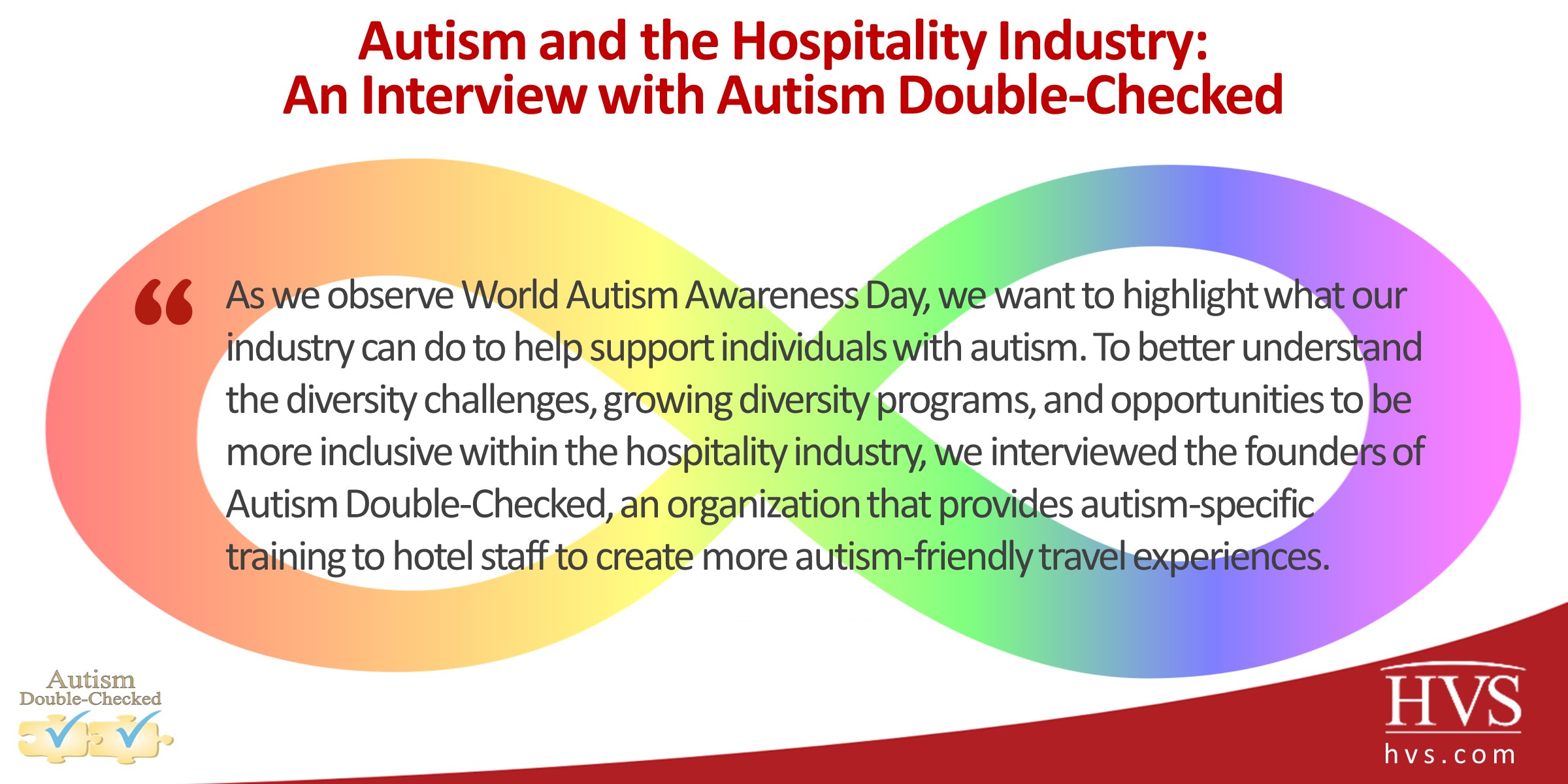
As we observe World Autism Awareness Day, we want to highlight what our industry can do to help support individuals with autism. To better understand the diversity challenges, growing diversity programs, and opportunities to be more inclusive within the hospitality industry, we interviewed the founders of Autism Double-Checked, an organization that provides autism-specific training to hotel staff to create more autism-friendly travel experiences.
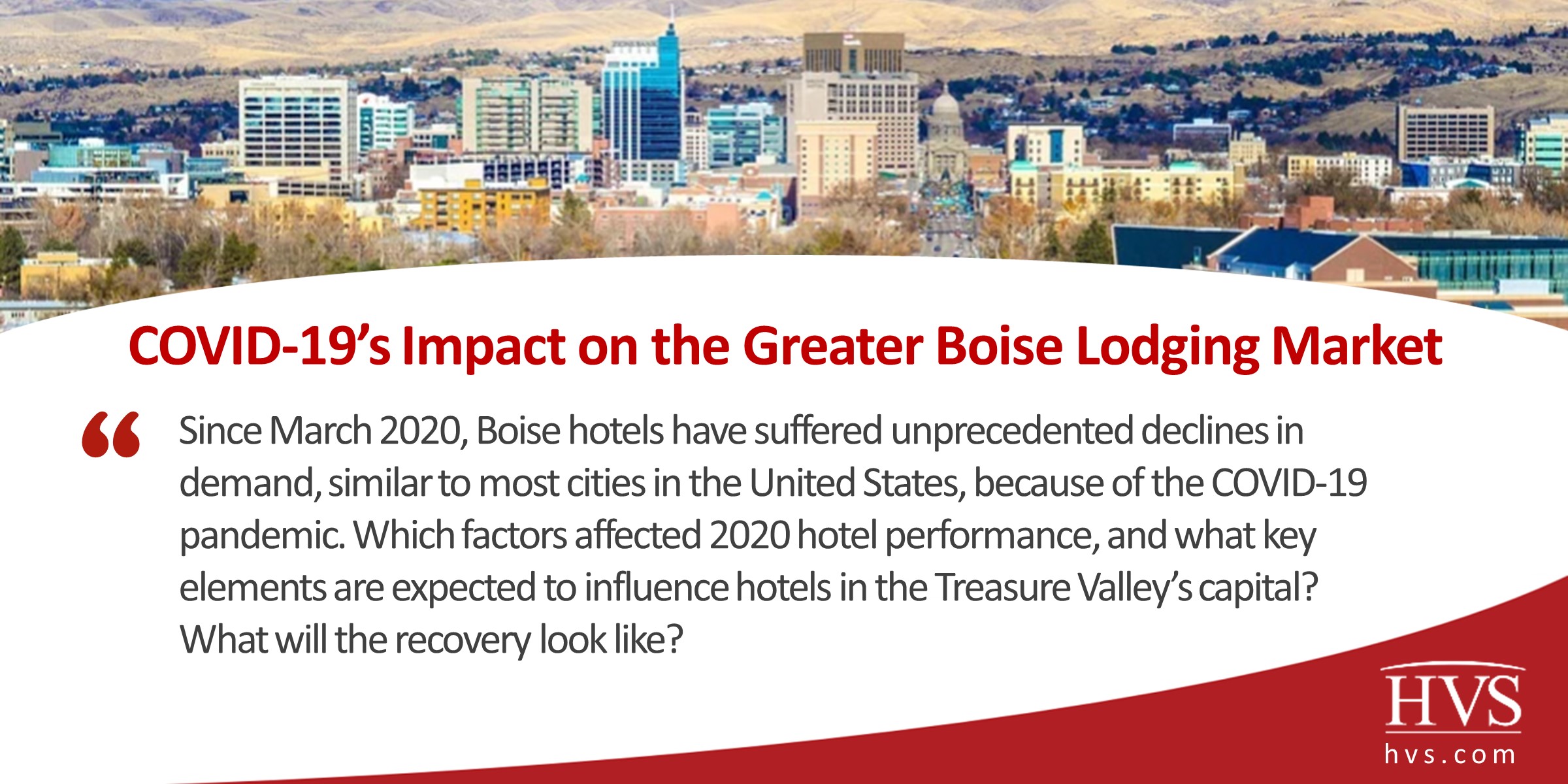
Since March 2020, Boise hotels have suffered unprecedented declines in demand, similar to most cities in the United States, because of the COVID-19 pandemic. Which factors affected 2020 hotel performance, and what key elements are expected to influence hotels in the Treasure Valley’s capital? What will the recovery look like?
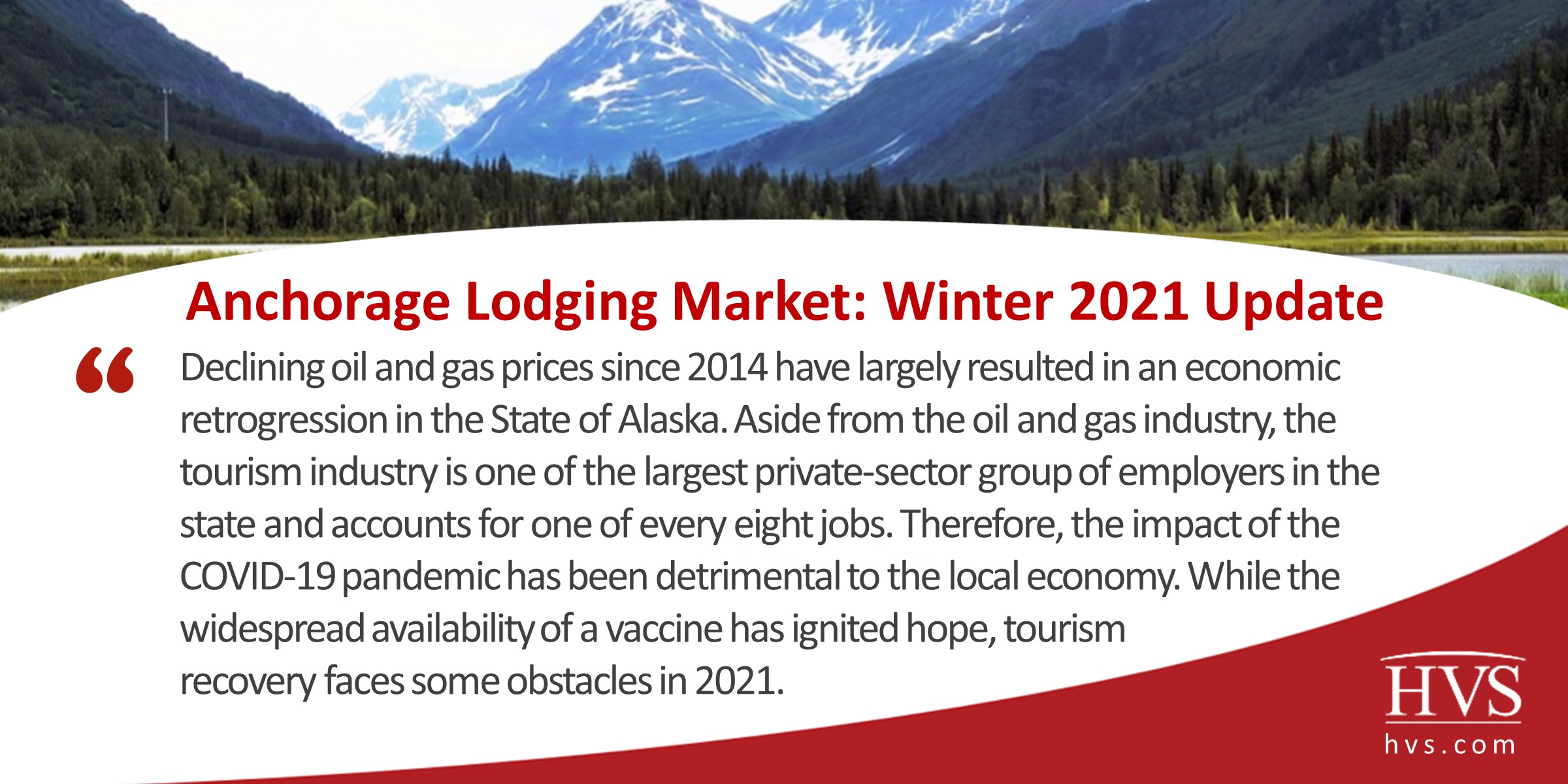
Declining oil and gas prices since 2014 have largely resulted in an economic retrogression in Alaska. Aside from the oil and gas industry, the tourism industry is one of the largest private-sector groups of employers in the state and accounts for one of every eight jobs. Therefore, the impact of the COVID-19 pandemic has been detrimental to the local economy. While the widespread availability of a vaccine has ignited hope, tourism recovery faces some obstacles in 2021.

Extended-stay hotels have long been the industry's answer to those seeking accommodations similar to an apartment, but without the need to sign a long-term lease. Stays can be as short as one overnight or as long as years, in rare cases, but generally trend from two weeks to a couple of months.
Recent stimulus passed through the federal government will significantly impact recovery for the travel industry. Publicly funded destination marketing organizations (“DMOs”), tourism agencies, and entertainment venues will benefit from provisions of the $900 billion COVID-19 relief package. HVS explains how certain provisions of recent stimulus and President Biden’s proposed stimulus package contribute to recovery of vital sectors of the US economy.
2020: A year like no other in the Canadian Hotel Industry, a year to capitalize on fine tuning operations to be more efficient for when demand returns in 2021.
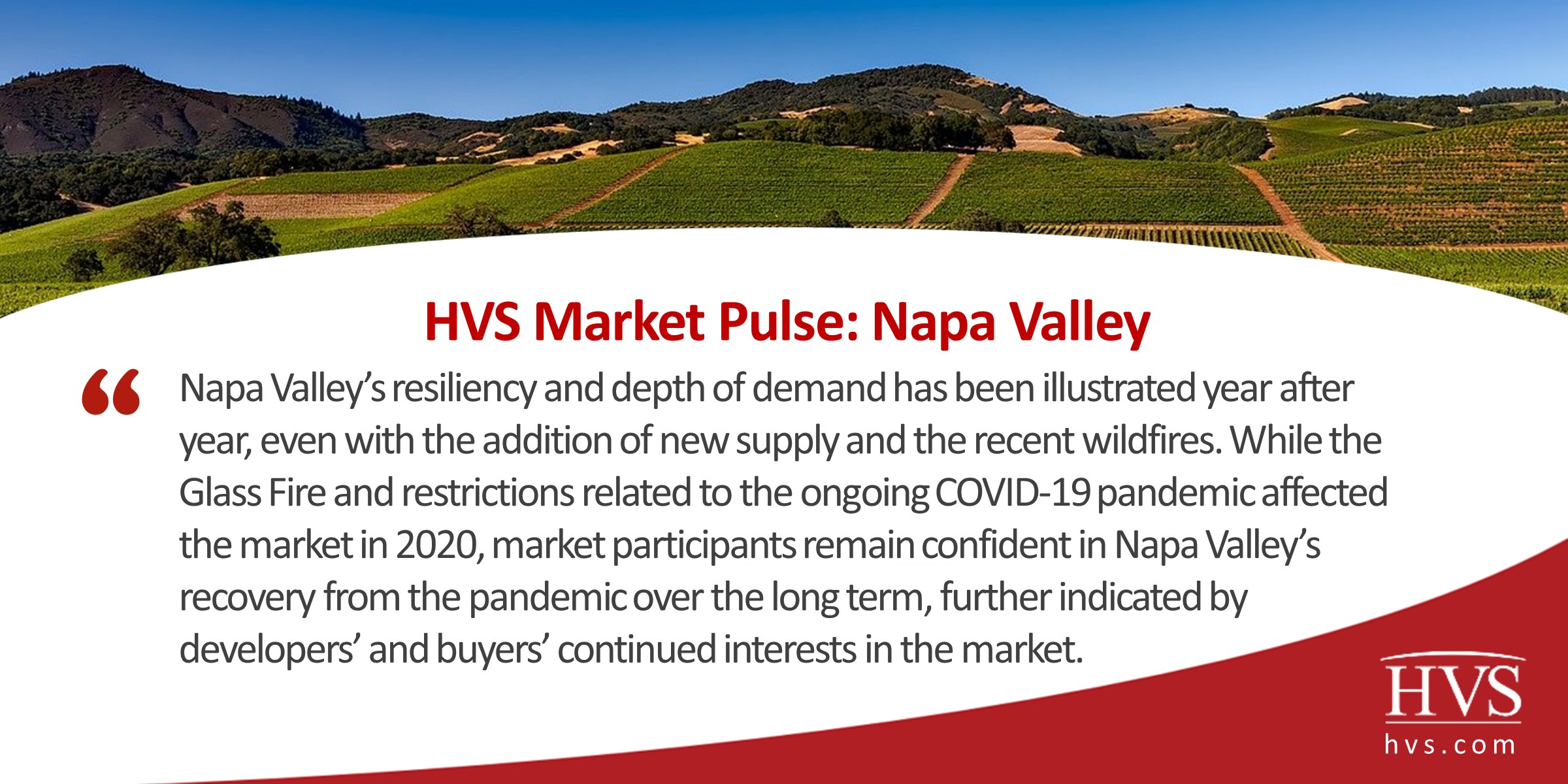
Napa Valley’s resiliency and depth of demand has been illustrated year after year, even with the addition of new supply and the recent wildfires. While the Glass Fire and restrictions related to the ongoing COVID-19 pandemic affected the market in 2020, market participants remain confident in Napa Valley’s recovery from the pandemic over the long term, further indicated by developers’ and buyers’ continued interests in the market.
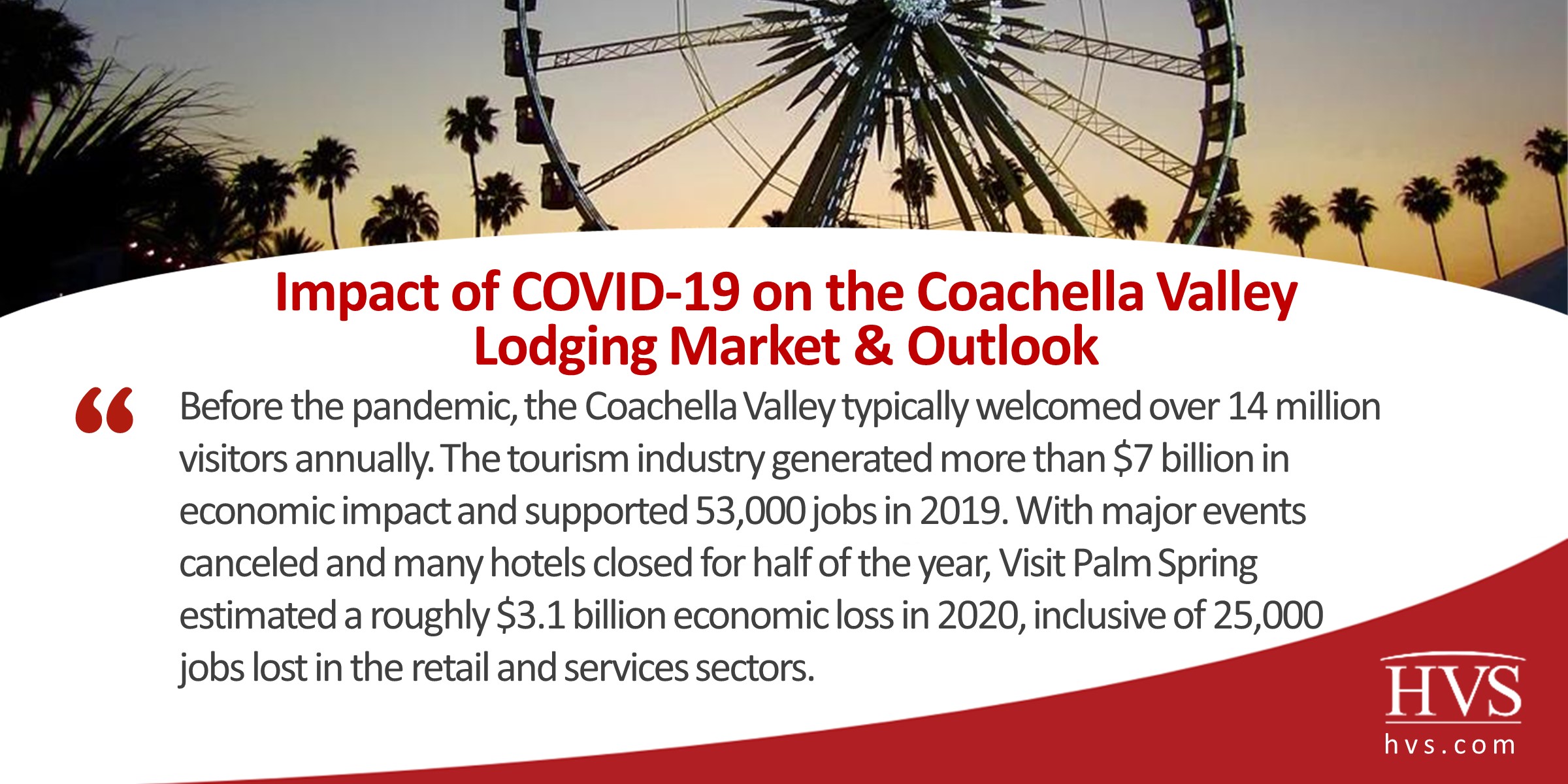
The Coachella Valley is known for its signature events, including the Coachella Valley Music & Arts Festival. With major events canceled in 2020, how did the market perform? What’s the road for recovery?
While the hospitality industry is going through one of the roughest years of recent history, it is crucial that strategic decisions are taken considering all aspects of an owner – operator partnership. This guide features 100 operators in over 47 countries and territories in the Middle East & Africa, and aims to guide owners in understanding the scale, presence and capabilities of operators in this region.

Robust demand in urban centers continues to drive Canadian hotel values despite high interest rate environment.